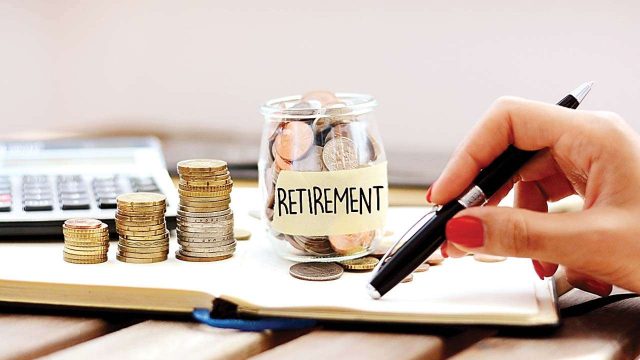How Do You Know if You’re Ready to Retire? Consider These Factors to Find Out.
By Odaro Aisueni
January 10, 2024 • Fact checked by Dumb Little Man

For most of our lives, things are mapped out fairly clearly. We know what to expect when it comes to getting an education, moving into life after graduation, and advancing up the corporate ladder, thanks to our parents and peers who pave the way. However, the path is not as clear when it comes to retirement. That’s why one of the top questions I get asked as a financial advisor is, “How do I know if I’m ready to retire?”
Having a road map for retirement is not as straightforward as picking a college major or choosing a career path. It’s more of a complex journey than a simple trip, one that requires a lot of forward planning to reach the destination you want.
That’s because there are several key factors to consider before the bliss of retired life can become a reality. These include examining your current lifestyle, setting up a retirement savings plan, and determining whether you’re saving enough for retirement based on the time you have left to invest in your portfolio.
Top Considerations for Financial Planning for Retirement
To start, consider the lifestyle you currently enjoy. A reality of life is that we’re creatures of habit, and our habits are revealed in the way we spend our money. The way you spend won’t automatically change once you hit retirement, which is why your retirement savings should be able to fund the life you want to continue living once you stop working. That way, you don’t have to change your spending habits suddenly.
Time is the other major factor you should consider when asking, “How do I know if I’m ready to retire?” I love to watch boxing, and one of my favorites in the sport is Deontay Wilder. He isn’t the best technician, but he has a devastating right hand that makes up for his mistakes (and has helped him win several heavyweight titles). Time is much like Wilder’s right hand in that it does the heavy lifting in your retirement savings plan.

The earlier you save for retirement, the more time you have to fund your future lifestyle. Even if you aren’t adding large quantities to your retirement savings account each month, every dollar adds up over time. And you’ll be grateful you made the sacrifice in the long run.
Although your lifestyle and time are two of the most important elements you should consider to know how much you should save for retirement and whether you’re actually ready to retire, there are other variables you can factor into your retirement savings plan:
1. Your age
Age is the most straightforward factor in knowing if you’re ready to retire. That’s because qualified retirement plans, such as 401(k)s and 403(b)s, all have set rules that must be met to take out the funds without penalties or additional taxes. One of those rules is that you must be at least 59 1/2 years old to make penalty-free withdrawals. So, if you wanted to retire at age 52, but all your assets are in qualified retirement accounts, you might not actually be able to retire then — even if you have enough assets in those accounts to fund your lifestyle.
2. Your ideas and preferences
One thing I tell all my clients is that their ideas matter. Chances are, you have dreams and plans for what you would like to do with your retirement savings. The way you live today impacts those plans, so you want to calculate whether your goals for retirement are feasible with the current direction of your savings. Of course, the more you sacrifice today, the more you can enjoy in the future. But today still matters; it’s all about finding balance.
In theory, you can save every extra dollar, but in reality, we know that’s no way to live. You don’t need to only eat rice and beans until you’re 65 years old. Just be honest with yourself and take into account the things you enjoy like haircuts, massages, facials, and new shoes. And keep in mind that retirement is not a life requirement. It’s ultimately more important to decide whether you’ve reached a place of financial independence, one where your assets allow you to live the life you want without the need for income.
3. Your risk tolerance and investment strategy
The amount of risk you’re willing to take on in your retirement portfolio is a critical part of saving for retirement. Investment volatility can be a double-edged sword because growing your portfolio means you must accept the chance of losses. If you’re quite a few years off from retirement age, some risk is OK because you have time to recover. However, selecting investments that appropriately fit your risk comfort level is an essential factor in your investment strategy.
But remember that no investment strategy or asset can outperform a great savings rate. Coming from someone who watches “The Big Short” to feel something and spends weekends researching investment philosophies: Your investment strategy doesn’t matter unless you’re consistently saving.
4. Your state of mind
In retirement, you reap the rewards of your hard work. But with that comes its own set of challenges, such as the struggle of switching off from work to a life of relaxation, having more time on your hands with less money to spend, and processing the emotional identity shift. Although you might be financially ready to retire and have a set plan in place, you should ask yourself if you’re truly prepared to take that mental and emotional leap into the next stage of your life.
5. Your health
As much as we don’t like talking about death, it’s an unfortunate reality of life and an important factor to think about in your retirement plan. Estate planning, for example, is one of the more critical parts of financial planning for retirement. Before retirement, work through your beneficiary designations, such as determining how your assets will be distributed and taking taxes into account.

The estate tax limit is going back to $5 million per individual on Jan. 1, 2026. So, you want to develop effective methods for gifting your assets away if they’re likely to exceed that limit. Additionally, you should update your health and financial powers of attorney as you near retirement age to ensure things are in order.
It can be daunting to think about the dreaded question, “How do I know if I’m ready to retire?” However, by taking these considerations into account as you create a financial plan for retirement, you’ll be on your way to enjoying the retired life of your dreams while making the most of the present moment.
Odaro Aisueni
Odaro Aisueni is a first-generation Nigerian American who grew up in Houston, Texas, and currently works as a financial planner at Plancorp, a full-service wealth management company serving families in 44 states. Odaro attended Texas Tech University, where he studied personal financial planning. There, he grew a passion for financial education. He now aims to equip young generations with financial knowledge and offer financial truths with a mix of entertainment.

